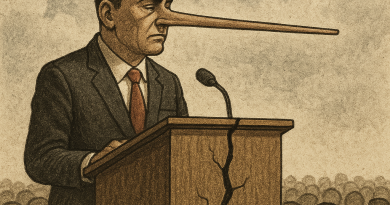The Urgency of Scientific and Critical Thinking for Students

By Dr. Abdul Wadud Nafis, LC, MEI
In the midst of the era of globalization and rapid technological advancements, the ability to think critically and scientifically is becoming increasingly important, especially for students as future leaders. As part of the intellectual community, students are expected to face various challenges with a rational and evidence-based approach. But why is scientific and critical thinking so urgent to develop in an academic environment?
Scientific thinking teaches us to approach problems with systematic and measured steps, while critical thinking trains us to evaluate information objectively and not be easily influenced by assumptions or biases. Both not only help in producing more accurate solutions but also shape individuals who are independent, innovative, and ready to adapt to the changing world.
In this article, we will explore the definitions of scientific and critical thinking, and why these two skills are crucial to equipping students to compete in a rapidly evolving world.
Below is an explanation of the definitions of scientific and critical thinking relevant to supporting this urgency:
A. Definition of Scientific Thinking
Scientific thinking is a thought process based on the scientific method, where one uses systematic steps to understand, analyze, and solve problems. It involves observation, data collection, hypothesis formulation, experimentation, and result analysis to reach logical and tested conclusions. This process prioritizes objectivity, rationality, and openness to new results that may contradict initial beliefs.
B. Characteristics of Scientific Thinking Include:
- Critical of Facts and Information – Not accepting everything seen or heard at face value.
- Evidence-Based – Every conclusion or explanation must be supported by valid and reliable data.
- Open to Revision – Results and conclusions can be changed if new evidence or facts are discovered.
- Using a Systematic Method – Scientific steps are conducted in a sequential and logical order.
C. Definition of Critical Thinking
Critical thinking is the ability to analyze information objectively and evaluatively in a logical, skeptical, and reason-based manner. It requires individuals to question, test assumptions, assess arguments, and identify biases and weaknesses in the reasoning or information encountered. The goal of critical thinking is to achieve a deeper understanding and make better decisions or conclusions.
D. Characteristics of Critical Thinking Include:
- Analytical – Able to break down information into smaller parts for better understanding.
- Objective – Evaluating information without personal bias.
- Reflective – Reviewing information, arguments, or events in depth to find the true meaning.
- Skeptical – Not immediately believing, always questioning the source and validity of the information received.
- Logical – Able to construct arguments in a coherent and logical manner.
E. The Relationship Between Scientific and Critical Thinking
Scientific and critical thinking complement each other. Scientific thinking involves methodological steps to discover truths based on evidence, while critical thinking involves deep evaluation of information, ideas, and arguments to ensure that the conclusions drawn are free from bias or erroneous assumptions. Both are essential for students to develop analytical, evaluative, and problem-solving skills in academia and daily life.
Thus, the development of scientific and critical thinking becomes an urgency for students to achieve excellent academic results and play an active role in building an intelligent and innovative society.
F. The Urgency of Scientific and Critical Thinking
The urgency for students to think scientifically and critically is crucial in facing the increasingly complex challenges of globalization, technology, and social development. Here are several fundamental reasons for the importance of these two skills:
1. Better Decision-Making:
Students who can think scientifically and critically tend to make decisions based on data and rational analysis, rather than assumptions or emotions. This helps them face problems with more accurate and efficient solutions.
2. Adaptability to Change:
In the digital and globalization era, changes happen very quickly. With critical thinking, students can evaluate new situations rapidly and formulate strategies to adapt without losing essence and quality in various aspects of life.
3. Enhancing Creativity and Innovation:
Scientific thinking is not just about understanding theory but also encourages students to explore new ideas. With critical thinking, they can evaluate these ideas objectively, ultimately increasing innovation in various fields.
4. Systematic Problem Solving:
Scientific thinking teaches students to solve problems using systematic methods, such as observation, hypothesis, experimentation, and result analysis. This equips them with the skills to find solutions to various problems they face, both on campus and in everyday life.
5. Avoiding Disinformation:
In an era of overwhelming information, critical thinking is essential to filter accurate and useful information from misleading or false information. Critically thinking students are better able to identify bias, propaganda, or fake news.
6. Contributing to the Advancement of Knowledge and Society:
Students trained in scientific and critical thinking can contribute to the development of knowledge by questioning existing assumptions, conducting deeper research, and introducing new ideas. They are also better equipped to understand social, political, and economic dynamics, enabling them to play an active role in societal development.
7. Increasing Independent Thinking:
Critical thinking teaches students not to accept information at face value. They will be accustomed to re-examining information, digging deeper, and constructing arguments based on strong evidence. This makes them independent individuals who are not easily swayed.
With scientific and critical thinking skills, students are not only ready to achieve academic success but also prepared to contribute to solving the challenges society faces.
As the nation’s next generation, students play a vital role in shaping the future. The ability to think scientifically and critically is no longer just an option but a fundamental need to compete in an increasingly complex world. By mastering these two skills, students not only become problem solvers for the challenges they face but also agents of change who can drive innovation, think independently, and significantly contribute to society’s progress. Thus, developing scientific and critical thinking from the time spent in college is a crucial investment for a brighter future full of opportunities.
References:
1. Arikunto, Suharsimi. (2010). Prosedur Penelitian: Suatu Pendekatan Praktik. Jakarta: Rineka Cipta.
2. Sumaatmadja, Nursid. (2005). Berpikir Kritis: Teori dan Aplikasi dalam Pengajaran Geografi. Bandung: Alfabeta.
3. Suriasumantri, Jujun S. (2017). Filsafat Ilmu: Sebuah Pengantar Populer. Jakarta: Pustaka Sinar Harapan.
4. Dantes, Nyoman. (2012). Metode Penelitian. Yogyakarta: ANDI.
5. Amiruddin, & Zainal Asikin. (2012). Pengantar Metode Penelitian Hukum. Jakarta: RajaGrafindo Persada.
6. Satori, Djam’an, & Aan Komariah. (2014). Metodologi Penelitian Kualitatif. Bandung: Alfabeta.
7. Suryabrata, Sumadi. (2014). Metodologi Penelitian. Jakarta: Rajawali Pers.


